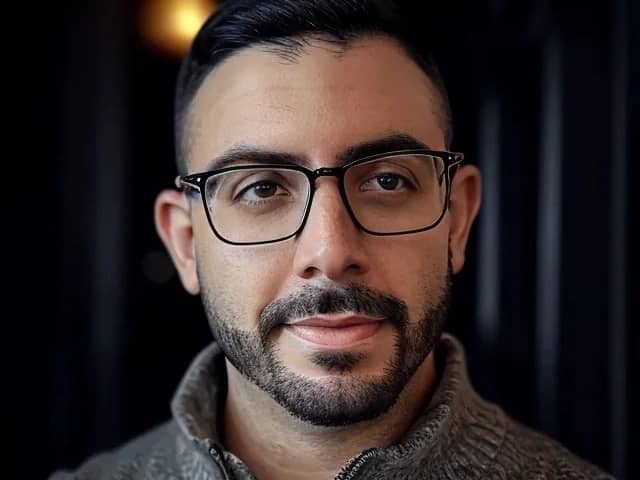Subscribe to wiki
Share wiki
Bookmark
Andrew Jacobs
Andrew Jacobs
Andrew Jacobs is the COO and co-founder of Lucia Protocol, a decentralized platform for undercollateralized digital asset lending. He is also the founder of Intra Blocks, a blockchain consulting firm. [1] [2]
Education
Jacobs graduated from the University at Albany with a Bachelor of Science in Human Biology in 2015. He then earned his Master’s in Crisis, Emergency, and Disaster Management from Thomas Jefferson University. [1]
Career
Jacobs is a technical founder and executive with a 13-year business operations and strategic management background. As the founder and CEO of Intra Blocks, he has worked on Web3 solutions, focusing on decentralized technologies and blockchain infrastructure. He has advised and collaborated with blockchain startups and enterprises, specializing in blockchain protocol design, tokenomics, decentralized applications, and scalable infrastructure. [3]
Currently, he is the co-founder of Lucia Protocol, a platform focused on integrating AI-powered ad attribution across Web2 and Web3. The platform includes features such as the Cross-Chain Passport and privacy-preserving customer journey tracking tools to optimize marketing campaigns and enable data monetization. Jacobs has helped projects navigate industry challenges and enhance technological and operational capabilities, combining technical expertise with business strategies to support decentralized ecosystems. [3]
Lucia Protocol
In March 2024, SuperWarm interviewed Jacobs about Lucia Protocol. The interview opened with why he launched a start-up: [4]
“The motivation behind launching Lucia Protocol was rooted in a profound belief in the transformative potential of blockchain technology to make the financial world more inclusive, efficient, and transparent. We saw an opportunity to address a critical gap in the market: the need for fair and accessible credit for individuals and startups. Our approach is unique; we combine on-chain data, like transaction histories, with off-chain data, such as credit scores and employment details, using zero-knowledge proofs to ensure privacy. This comprehensive credit assessment process allows us to offer a more accurate evaluation of creditworthiness.”
“In essence, the Lucia Protocol was born out of a desire to leverage cutting-edge technologies — blockchain and AI — to dismantle barriers to financial services and redefine what it means to be creditworthy. Our startup is more than a business; it’s a mission to create a fairer, more accessible financial ecosystem for everyone.”
He also shared the biggest challenge during development: [4]
“Growing Lucia Protocol, our biggest hurdle has been figuring out the maze of financial regulations. Mixing blockchain and AI is cutting-edge, but it also means we’ve got to be extra careful to play by the rules, which change depending on where you are. Plus, getting folks to trust and try out something as new and different as our platform hasn’t been easy. People are used to the old ways of doing finance, so showing them the real benefits of our approach takes some doing.”
“Then there’s the tech side of things — making sure we use all this data we’re gathering in a way that’s both smart and super secure, especially with privacy being a big deal for everyone these days. It’s been a balancing act, for sure. But despite these challenges, we’re all about breaking new ground and making finance fairer for everyone. It’s what keeps us going, even when things get tough.”
When asked about future endeavors for the project, Jacobs responded: [4]
“Looking ahead, we’ve got big plans for Lucia Protocol. We’re set on taking our unique mix of blockchain and AI further, reaching more corners of the globe and touching more lives. Tech-wise, we’re not slowing down either. Expect even smarter AI to make our financial services sharper and more personalized than ever.”
“We’re also keen on teaming up with both the old guard of finance and the new wave of fintech innovators. It’s all about joining forces to shake things up in the financial world. And of course, we’re staying on top of all the legal stuff and keeping our users’ data safe and sound. In a nutshell, we’re all about growing, innovating, partnering up, and keeping things tight and right. The road ahead is exciting, and we’re here to make a real difference.”
At the end of the interview, he shared some words of wisdom for future founders: [4]
“Starting your own startup is a thrilling yet challenging adventure. Embrace the rollercoaster of highs and lows, staying resilient through it all. Keep your vision clear in your sights, but be flexible enough to pivot when the journey demands it. Remember, a strong, passionate team is your biggest asset. Always listen to your users; their feedback is gold, guiding you to truly solve real problems. Don’t forget to take care of yourself; balancing your mental and physical health is crucial for sustaining your creativity and drive.”
“Celebrate every small win with your team — it keeps the spirit alive. Know when to let go of ideas that aren’t working; it’s not failure, but smart decision-making. Networking and seeking advice from others can offer invaluable insights, helping you navigate the startup landscape more effectively. Above all, persistence is your North Star; success takes time, so keep pushing forward with belief in your vision. Enjoy the journey, learn from each experience, and let your passion fuel your path.”
Interviews
Crypto’s Future
In an episode of 22 Questions, Jacobs discussed various aspects of the crypto industry, sharing insights on blockchain technology, decentralized finance (DeFi), and his journey since discovering Bitcoin in 2015. He highlighted the challenges of creating innovative, under-collateralized lending protocols and emphasized the importance of user education and product-market fit for broader adoption. Jacobs critiqued memecoins and unstable stablecoin models, stressing the need for regulatory oversight and backing by tangible assets. Reflecting on past lessons, he advocated for self-custody of crypto assets, referencing major industry failures like Terra Luna and FTX. Looking ahead, he anticipated increased integration of blockchain with traditional finance and other sectors while remaining cautious about the speculative nature of the space. [5]
See something wrong?
